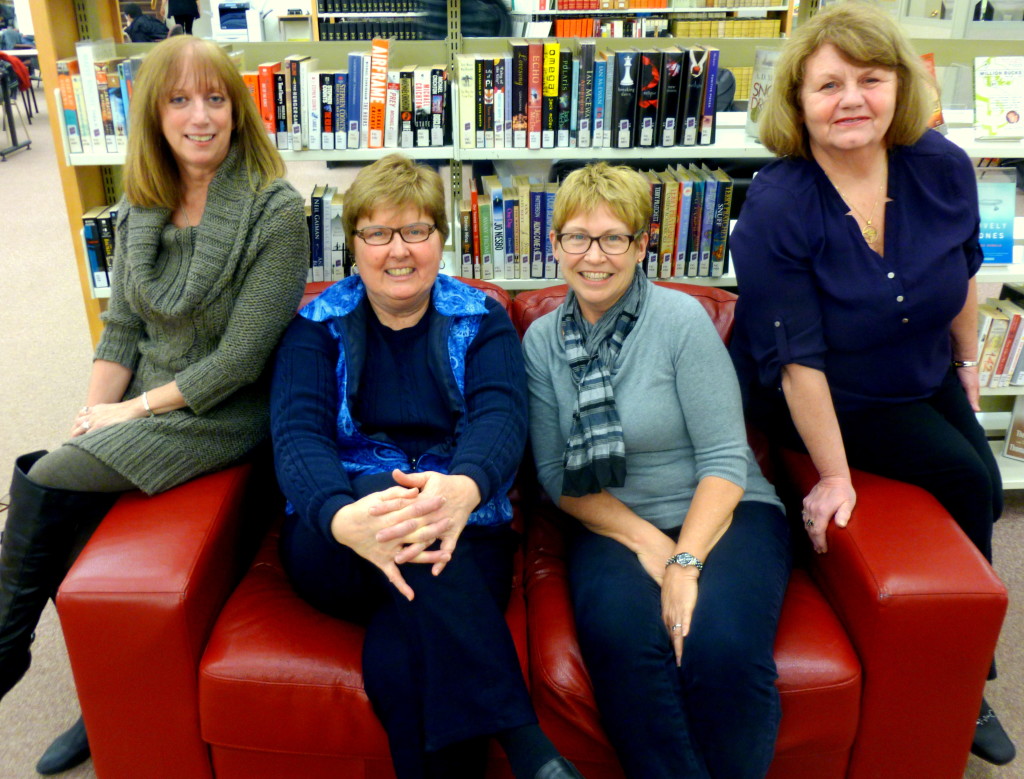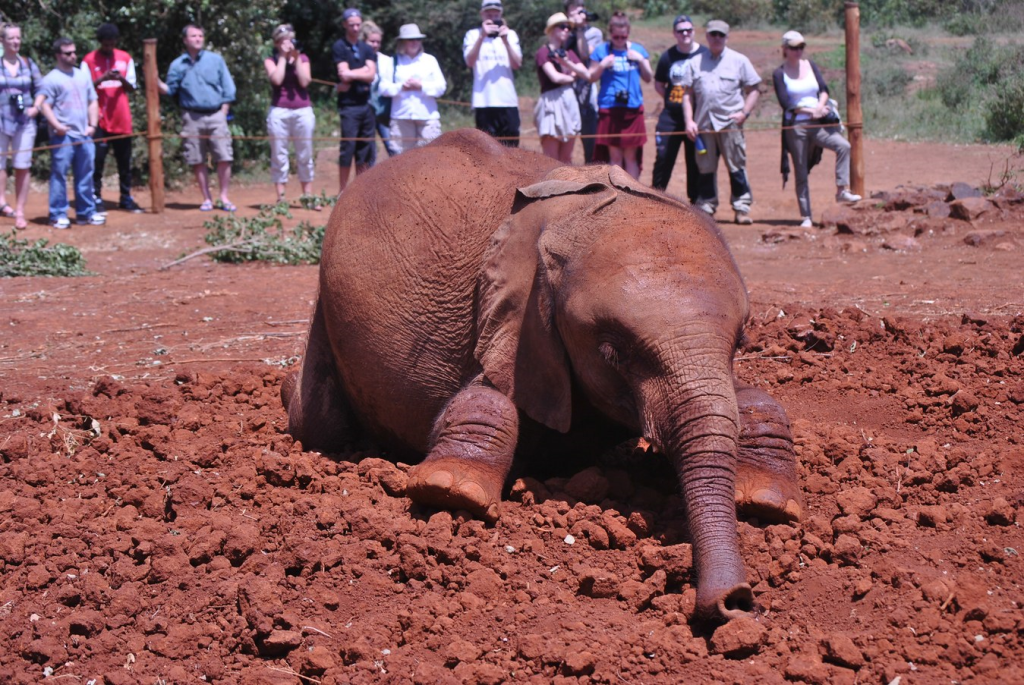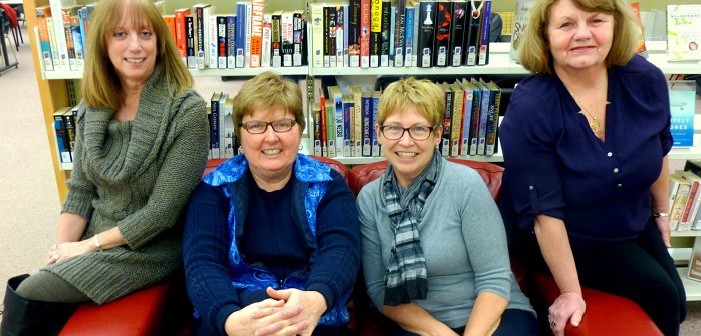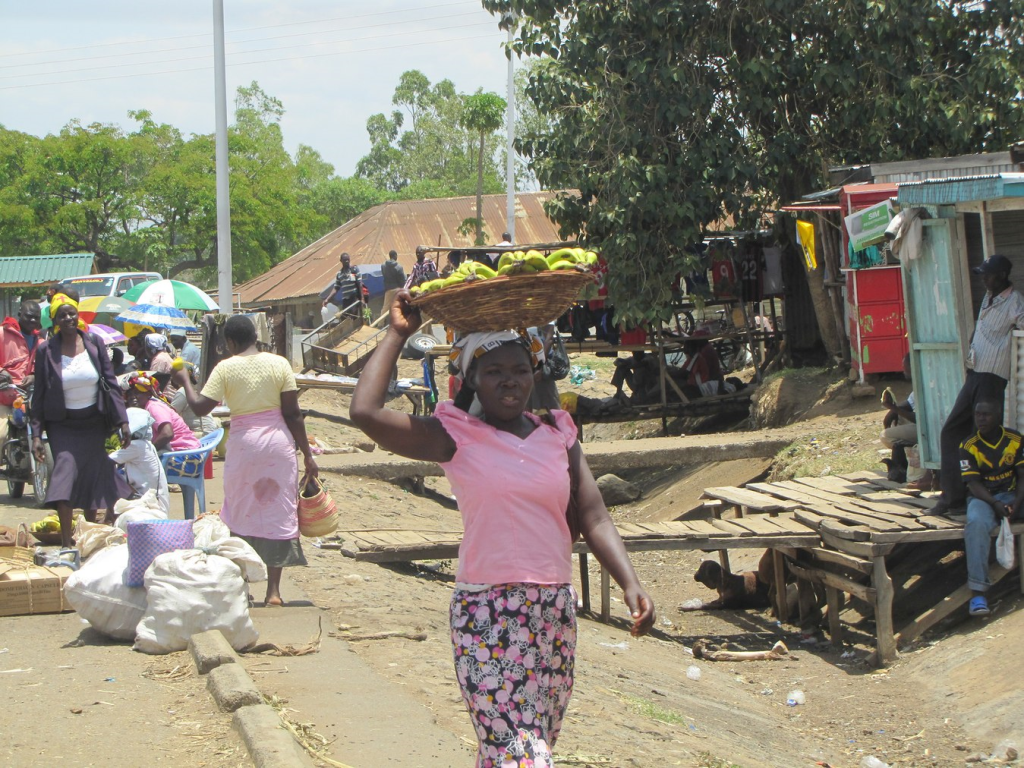Tumaini Afrika: Building Sustainable Futures
Hands, hearts, and hope for children. That’s the motto of Sault Ste. Marie-based volunteer group Tumaini Afrika, which consists of community members looking to make a positive difference and impact in the world around them, specifically in the heart of Africa. For five of the 18 members, they will soon be embarking on a trip of a lifetime in March 2016 to give a hand up, rather than a hand out, to disadvantaged children in the country of Kenya.
Like other humanitarian efforts or volunteer missions, Tumaini Afrika is founded on the belief of helping others help themselves. Rather than simply making a faceless donation from home, the group travels abroad, providing physical and manual labour as requested by the residents, as well as mentorship, education, and skills building, while simultaneously stimulating the African economy. “We’re working to help them help themselves,” begins Holly Wickett, a retired educator with the Algoma District School Board (ADSB), who helped found the group. “It’s vital that we provide these students with skills, lessons, and the opportunity for a sustainable life that will last for years after we have left their village. Education is the key and helping schools and life skills and leadership programs have been our focus so far. We have lots to learn from the locals there and we will assist in whatever way they want us to.”

From left: Sylvie Mackey, Holly Wickett, Sheree Wilson, and Dianne Hilderley. Missing: Jeannine Jefferson
Together, the group will be travelling to the Nairobi region in Kenya for three weeks through the program Africa by Design Safaris. While abroad, the group will be constructing part of a large 12-acre fence to surround the perimeter of a secondary school, supplying a water tank for a primary school funded by the Retired Teachers of Ontario (RTO), purchasing textbooks, goats, chickens, seeds, and fabrics, fixing desks, and discussing water purification systems.
The fence project will be one of the largest undertakings for the group, but all know the benefit and significance of the project outweighs the labour and sweat involved. The fence will be built in Namuncha in the Great Rift Valley, and will be equipped with barbed wire. “The fence is a really big deal. Right now, there are only three classrooms within the secondary school, but the village is hoping to expand this. These kids have to walk very far to go to school and the school is also located in the middle of nowhere. It’s also grassland. If you go there, you can’t see the animals. It’s not like animals we have here, like cats and dogs. No, we’re talking about big animals, like lions and hyenas. So it’s a very dangerous area. Even the cows will wander into the schoolyard and have harmed the kids. So they really need this fence for safety to be able to learn,” says Sylvie Mackey, a former teacher in a French language school who still supply teaches on occasion.
But the fence goes beyond just providing students with a safe place to learn, something which Canadians take for granted on a daily basis. For those in this Masai village, children are only educated up until the eighth grade. After that, students are privately boarded in Nairobi, which most cannot afford. But with a new secondary school being created within the village, children in this village and neighbouring communities are finally being presented with the opportunity to earn an accessible high school education. “So one of our goals with the fence is to be able to help them get an education past eighth grade,” adds Diane Hilderley, a retired nurse within the Sault area.
The group of five ladies will also be volunteering at Compass School, a school in which both Wickett and Mackey have already visited in their first volunteer trip to Africa in 2014. For both, although their first visit was for only one afternoon, the experience has haunted them to this day and left them wanting to help. “The kids are orphans and refugees so they don’t really have anything. We’ve been raising money to assist with feeding them, ensuring they get one quality meal a day, which is usually at the school,” says Wickett. Most of the school’s students live on the streets or in slums, and survive off of the one meal a day provided by Compass School. Since malnourishment was so prevalent in their first trip to Compass School, Tumaini Afrika has sent money to purchase seeds, allowing the students to further expand their vegetable garden. The group has also sent money allowing for the purchase of one fruit a week per student. Northern Heights Public School in Sault Ste. Marie has also sent funds to support a breakfast program for several weeks. Tumaini Afrika has also paid to have a chicken coop, which is housed on the school grounds, repaired, and purchased 10 chickens. These chickens have since laid eggs, giving the students protein in their diet. Some of the chickens have also reproduced, allowing them to sell the chicks at market, generating an income for themselves. “We’re also raising money for school supplies. We’ve sent money overseas so that they could hire a sewing teacher to teach the kids to sew. So the girls are now able to make things that they are able to sell, earning some money for themselves.”
One of the other important initiatives that Tumaini Afrika has aligned itself with is County Girls Caucus (CGC). CGC is a four-day program, designed specifically to help girls make a life plan. “The whole idea is to have them make a life plan and realize that they don’t have to have children at age 13. They can do more. They can get an education. It allows them to pursue their education and build a better future. It’s a life skills empowerment workshop.” At a cost of 10 American dollars per student, Tumaini Afrika has managed to support over 400 students thus far in the program.
Where Tumaini Afrika’s time, effort, and money is being spent in Kenya has been carefully selected. “One of the worst things we can do is just give things to Africans,” says Hilderley, echoing the message she received from her daughter years before after her daughter returned home from teaching in Tanzania. “When we created Tumaini Afrika, it was important to me that we followed my daughter’s advice. We’re not doing what we think is good or what we think will help make a difference. Rather, we’re listening to what they tell us they want and need.”
One of the important initiatives they are continuously told about is feminine hygiene products. Due to the nature of their travel, the five women venturing to Africa have extra luggage allowance. “We are taking a fair bit of luggage. One of the things we’re taking with us is sanitary kits, and reusable feminine hygiene products. Girls miss one week of school each month because of their menstrual cycle.” That’s 12 weeks of school a year. People should never have to miss school based upon their gender and normal reproductive cycle. These sanitary kits are being prepared by the Sewing Bees, the Sault Ste. Marie chapter of Days for Girls. Many members of Tumaini Afrika, including Mackey, are also sewing these kits.

David Sheldrick Wildlife Trust Kenya. Photo courtesy of Holly Wicket https://hwickett.exposure.co/africa
For Jeannine Jefferson, who retired from teaching in the French immersion program last June, her reason to venture abroad and volunteer is personal. 21 years ago, she and her husband adopted their daughter from China. “She reminds us of the impact that a little love and compassion can have on a family and how two cultures can easily become one,” she says. Jefferson is hoping to become immersed in the Kenyan culture and lifestyle, learn from their way of life, and help break down the barriers that exist between the western world and the third world. “I taught my students about the ‘us’ and ‘them’ factor last year and I’m anxious to see if it really exists and whether, through kind words and actions and a sharing of cultures, if we are able to break down some of the barriers that divide the people of this wonderful world of ours.”
Each member of Tumaini Afrika chose to help out in Africa for various personal reasons, but all cite the extreme poverty as the underlying reason. “Africa is unidentifiable on the world map when it comes to world wealth. They have billions of people in extreme poverty. No doubt that we have our own poverty and we must continue to help here, too. But the poverty in Africa is overwhelming. In terms of orphans, they have more orphans in Africa then we do children in Canada,” says Wickett.
“The people are living in absolute poverty but yet they’re so happy. What they don’t have is incredible, but they are still smiling. They just seem to get through it and are grateful for everything they do have. We were touched by every person that we came into contact with, in a way that was unexplainable,” adds Mackey, who first became interested in helping out in Africa after housing refugees from the continent. “We had to go back.”
Aside from helping out overseas, each member of Tumaini Afrika is heavily involved in humanitarian and volunteer efforts at home in Sault Ste. Marie. From volunteering with ARCH (Algoma Residential Community Hospice) and Christmas Cheer, to elementary school breakfast programs and Habitat for Humanity, to housing refugees studying through the World University Service of Canada (WUSC) and World Youth, to volunteering at churches and with new settlers in Canada, the group knows that one person truly can make a difference.
But for Tumaini Afrika, helping out in Africa is different because they’re helping build a foundation and social structures to ensure that relief is sustainable. “The way I look at it is that the world is a community. We’re all in this together. When you break down the boundaries that exist between cities and countries, we’re all human, we’re all the same. We all work and care about the issues that exist at home. But there’s a route to those issues. There are channels and a foundation to help. Where as in Africa, it really is a boots on the ground kind of initiative,” adds Sheree Wilson, a retired educator in the ADSB.
Each member of Tumaini Afrika is paying their own way to fly, live, and stay in Africa. However, the group is fundraising for their initiatives while overseas. Any moneys raised will go toward purchasing goods in Africa, therefore stimulating the African economy. “100 cents of every dollar raised will go to the people of Africa. There are no administrative fees in the way we are fundraising. Every cent will go toward helping Africans and their economy. The funds that we have requested from other people will be used entirely in Africa,” says Wickett.
Even though each member of Tumaini Afrika who is venturing abroad is “retired from paid work,” as Wilson laughs jokingly, this dynamic group of individuals donates and dedicates much of their time to helping improve the quality of life for those at home and around the globe. They have dreams of a world where disparity and poverty is a thing of the past, and work tirelessly in their own lifetime to make these dreams come to fruition.
*****
To donate to Tumaini Afrika’s initiatives, please contact the group via email at tumainiafrika@gmail.com or call Wickett at 705.942.6088. The group will also be hosting a benefit pub at the Grand Gardens on Friday, January 29th, which will feature 10-piece band The Reptiles. Tumaini Afrika also sells handmade items at the Mill Market, with all proceeds raised going to the initiatives aligned with the group in Africa. A large garage sale will also be occurring at St. Andrews United Church in the springtime. For more information on any of these fundraising events, please visit the Tumaini Afrika’s Facebook page.






